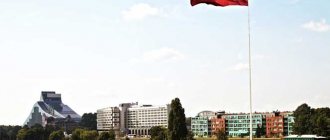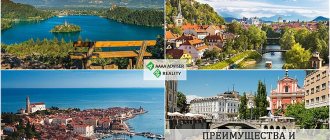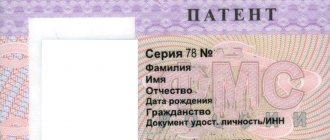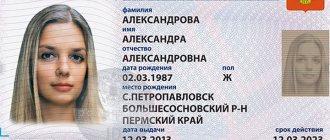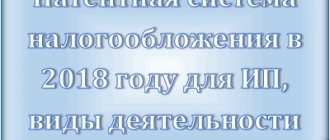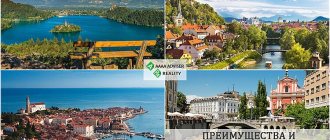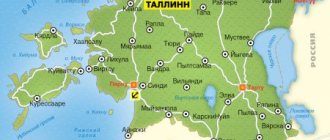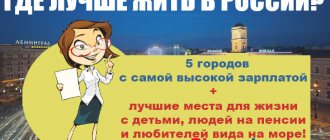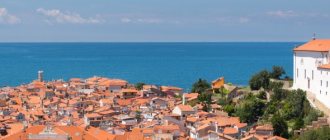Advantages of Slovenia for living
- The beauty of the country; It’s hard not to mention the incredibly beautiful nature in Slovenia. After all, it is so important for all of us to live in a place that gives positive emotions every day and makes us take our minds off everything.
- Slovenia is a member of the European Union; Therefore, it offers very favorable conditions for business development and entering the European market. What does business have to do with it? Business immigration is one of the most popular grounds for obtaining a residence permit in Slovenia.
- One of the cleanest European countries; Thanks to its varied natural landscape, thermal springs, sea and mountain air, Slovenia is a very clean country. The level of ecology in Slovenia deserves applause, and the Government is doing its best to maintain it. In hotels in Slovenia you can often find a sign stating that tap water is not only possible, but also necessary to drink.
- High quality of life; The average life expectancy in Slovenia reaches 80-82 years. Due to the fact that the country provides comfortable conditions for a happy life, the residents of Slovenia are very active and lead a healthy lifestyle.
- Stable economic indicators; Slovenia is a country with a stable economy. The economic indicators of Slovenia are quite high, which allows it to occupy worthy places in various rankings.
- Low prices; Despite the fact that the standard of living in Slovenia is extremely high, you can live there without major expenses. Prices in Slovenia are relatively low, which often surprises tourists when visiting this developed European country.
- Quality education. Universities in Slovenia provide quality education, which is why students often choose Slovenian universities to study. Some of the best educational programs in the world can be accessed by anyone.
Product prices
The cost of the food basket largely determines the country's attractiveness for immigrants.
| Name | Unit measurements | Price in euros |
| Fresh white bread | 1 kg | 1.5 |
| Egg | 12 pcs. | 2.0 |
| Milk | 1 l | 1.0 |
| Rice | 1 kg | 1.5 |
| Cheese | 1 kg | 6.5 – 10 |
| Chicken fillet | 1 kg | 7.0 |
| Potato | 1 kg | 1.0 |
| Tomatoes | 1 kg | 1.5 – 2.5 |
| Apples | 1 kg | 1.2 |
| Oranges | 1 kg | 1.2 |
A special feature of Slovenia is that provisions can be bought in a store 20%-30% cheaper than on the market. Market traders sell organic food and people attach great importance to organic food. Food prices in Slovenia are lower than in many European countries, but higher than in Moscow, mainly due to the difference in exchange rates.
What should you consider before moving?
- Climate; Slovenia has a high level of humidity, so fog in the mornings is not uncommon. Ljubljana (the capital of Slovenia) is often considered the rainiest of European capitals. The disadvantage is not critical, but for many it is significant. When choosing the best country for health, it is worth noting this before moving to Slovenia.
- Authorized capital. If business immigration is chosen as the basis for obtaining a residence permit in Slovenia, then you need to take into account that the authorized capital when registering a company is at least 7,500 euros and it must be deposited into a bank account.
Most Frequently Asked Questions and Answers:
How long does it take to obtain permanent residence in Slovenia?
Having issued a residence permit in the specified country, after five years you can apply for permanent residence.
How long does it take to obtain Slovenian citizenship?
Slovenian citizenship can be obtained after ten years of residence.
Is it possible to gain access to local medicine based on this type of Slovenian residence permit?
Yes, a resident of the country has the opportunity to contact local medical institutions.
As a resident of Slovenia, is it possible to obtain a residence permit for the whole family?
Yes, the holder of a residence permit has the right to issue cards for his wife, children and parents if they are over 65 years old.
Will I and my children have the right to education in Slovenia after receiving a residence permit?
Yes, by obtaining a residence permit in Slovenia
You can study at local educational institutions.
How long does it take to issue a residence permit in Slovenia?
The document is issued for one year, then it is renewed every year, after 5 years you can obtain permanent residence.
Is it possible not to stay in Slovenia after receiving a residence permit?
The minimum period of residence, which is established by law, is at least 180 days a year. However, absence due to official necessity is an exception and allows, if necessary, not to reside in the country.
Is it possible to move freely around the European Union with a Slovenian residence permit?
Yes, all holders of a residence permit of a given state have this opportunity.
Can I purchase real estate in Slovenia for myself as a private person after receiving a residence permit?
Russian citizens can purchase real estate in Slovenia only through their own company. Citizens of the European Union, the USA and the UK can purchase real estate in the country as a private person.
What are the requirements for obtaining permanent residence in Slovenia in the future?
The main thing is, of course, not to violate the laws of Slovenia and pay taxes regularly. Also, to apply for permanent residence status, you must extend your residence permit status without interruption.
What rights does a Slovenian residence permit holder not have?
The holder of a residence permit in Slovenia does not have the right to vote, participate in elections or work in government agencies. Also, the holder of such a residence permit will not be able to purchase real estate as an individual.
Why can a residence permit in Slovenia be denied?
Due to the incompleteness of the documents provided, the presence of a criminal record and the lack of grounds for obtaining a residence permit.
Grounds for obtaining a residence permit in Slovenia
A residence permit in Slovenia can be obtained in several ways. In general, the procedure does not differ significantly from the procedure in other European countries. So, there are four most popular grounds for obtaining a residence permit in Slovenia:
- Family reunification; On this basis, a residence permit in Slovenia can be obtained by those who have Slovenian roots or close relatives who are residents of Slovenia.
- Employment; For qualified specialists, there is the possibility of employment in Slovenian companies, which allows them to automatically apply for a residence permit.
- Studies; Admission to higher education institutions in Slovenia is also a popular basis for obtaining a residence permit. Given the high level of education in Slovenia, this foundation may suit many people.
- Creating a business. By registering a company and thus securing jobs in Slovenia, you can also obtain a residence permit. Such a basis, perhaps more than others, requires compliance with legal formalities, so you need to be very careful. Business in Slovenia must be real and successful. Moreover, the amount of fixed assets of a Slovenian company must be at least 50,000 euros. Therefore, it will not be possible to obtain a residence permit based on the very fact of creating a company.
Pensions and retirement age
Mandatory conditions for granting a pension in Slovenia:
- Reaching 65 years of age for women and men.
- Having at least 24 years of work experience.
For the calculation, 10 years are selected during which the employee received the largest remuneration. The average pension is 62% of salary or 700 €. The minimum amount for elderly people is 350 €.
The procedure for obtaining a residence permit in Slovenia
The procedure for obtaining a residence permit in Slovenia differs depending on the chosen basis. However, each applicant goes through the following steps:
- Preparation of documents corresponding to the selected basis; For example: If this is the registration of a company, then you need to provide statutory documents for the company, etc. In addition, it is necessary to prepare scans of passports, police clearance certificates, medical insurance, photographs and a bank statement (confirming the sufficiency of funds for living in the country).
- Filling out an application for a residence permit;
- Visiting the Embassy, submitting biometric data and undergoing an interview with an officer;
- Waiting for a response on the issuance of a residence permit;
- Getting a response. If the answer is positive, the applicant receives a completed document stating that the applicant has a residence permit in Slovenia.
Housing cost
Property prices in Slovenia vary depending on the region. In the capital, at thermal springs or on the sea coast, 1 square meter costs from 2000 € to 3500 €. In the rest of the country, housing is several times cheaper: from 1000 € to 1100 € per square meter. For many Russians, purchasing real estate in resort areas becomes a profitable investment that generates income. If you rent out an apartment or house here, you can recoup your investment in 6-7 years.
Buying a property
Only citizens of European Union countries have the right to buy an apartment in Slovenia. A person with a Russian passport, even with a residence permit, can inexpensively buy a house by the sea, only by registering it as a legal entity. It is not difficult to establish your own company in Slovenia, and great opportunities open up for the owner in terms of purchasing real estate, including commercial real estate.
Rent
Rental accommodation in Slovenia comes in a variety of options, from a bed in a shared room with other guests to large furnished houses. In the center, you can choose a one-bedroom apartment from 300 € to 500 €, and outside the city – from €250 to €400. Three-room apartments will cost 800 € and 600 € per month respectively.
Public utilities
The average bill for household services when living in a two-room apartment in a multi-storey building in Slovenia is 180 € per month. The lion's share goes to heating. Natural gas is mainly used, the price of which is €0.35 per cubic meter. The same volume of cold water costs €1.4, a kilowatt of electricity costs €0.1. If the apartment has a TV, you need to pay a fee for the TV and radio station - 12 €. Garbage removal will cost approximately 9 €.
How can we help?
- We will provide free legal advice on the most advantageous basis for obtaining a residence permit in Slovenia;
- we will register a company in Slovenia if you choose the basis of 'creating a business';
- We will help you fill out forms and guide you through the necessary documents;
- We will take charge of communication with migration authorities;
- We will give practical advice on how to successfully pass an interview;
- We will help with moving to Slovenia, including finding housing;
- We will answer all questions during the process.
Details
About life itself
Standard of living
More than sixty percent of Slovenia's working population has jobs. This is lower than, in general, for European territory. Excellent education in the country is provided free of charge for domestic and foreign citizens with a residence permit. Eighty-five percent of local residents have completed the secondary school program, which is higher than the European rate. Girls learn better than boys. The length of life of subjects in the state coincides with the average European age - eighty years.
The crisis does not have a significant impact on people’s habits - they travel, build households, purchase housing, and take out loans. The suburbs of Ljubljana are beautiful and decent villages with a developed level of infrastructure, with significant buildings of private households.
The crisis has had a negative impact on unemployment—its increase is noticeable. Because of this, many people express a desire to work for modest pay.
More about Slovenians
At first, the population of Slovenia seems unsociable and withdrawn. It is not customary for them to talk loudly and shout in the streets; they avoid discussions regarding the financial side of life or family problems. Topics about career or professional inclinations are welcome.
Slovenians really value family comfort; they even organize “family” meals on Sundays - at home or in a restaurant.
Important! In the state, during collective trips to a food outlet, each party pays individually.
Russians in Slovenia
Statistics say that between seven hundred and one thousand two hundred immigrants from the Russian Federation currently live in Slovenia. The diaspora has not been formed, and Russian immigrants are widely dispersed throughout the state. Recently, there have been more visitors from Russia, but the total number is small.
Nationals from Russia moved to Slovenia for various reasons - getting married, finding a job, starting a business.
Russians live in the megacities of Slovenia - Ljubljana, Kranj and other cities. Wealthy people settle in the vicinity of lakes located high in the mountains or on the sea coast.
The employment of Russian migrants is no different from the process for other foreigners. To issue a work permit under legal conditions, it is necessary to provide special guarantees from the person or employer company, issued for one year. Foreigners have no chance of getting a good job with a high salary in Slovenia. Predominant vacancies are construction of buildings, sawmills, woodworking, etc. Immigrants work as workers in the farming industry for a certain season, because similar employment does not attract the local population. Issuing a work permit and residence permit takes approximately 3-4 months.

